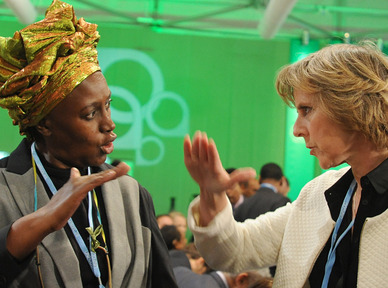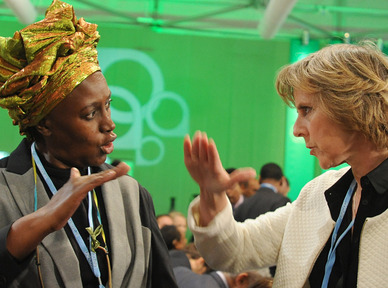WARSAW, Poland — After another U.N. climate conference gave only modest results, European Climate Commissioner Connie Hedegaard said the process needs to provide a “substantial answer” to global warming in two years to remain relevant.
Even if it succeeds, it’s worth reconsidering whether the international confabs need to be held every year, and whether the scope of each session should be narrower, she said Sunday.
In two decades, the U.N. talks have failed to provide a cure to the world’s fever. Heat-trapping carbon emissions that scientists say are warming the planet are growing each year as most countries still depend on coal and oil to fuel their economies.
Besides those emissions, the U.N. talks deal with a range of complex issues, including monitoring and verification of climate actions, accounting rules and helping developing countries cope with sea level rise, desertification and other climate impacts as they transition to clean energy.
The two-week session that ended Saturday in Warsaw nearly collapsed in overtime before agreements were watered down to a point where no country was promising anything concrete.
As the gavel dropped, negotiators emerged with a vague road map on how to prepare for a global climate pact they’re supposed to adopt in two years – work Hedegaard said will be crucial in deciding whether the world still needs the U.N. process.
“I think that it has to deliver a substantial answer to climate change in 2015,” Hedegaard said. “If it fails to do so, then I think this critical question will be asked by many more.”
Many climate initiatives are happening far from the U.N. negotiations as local and national governments pursue low-carbon energy sources and energy efficiency. Even international efforts are increasingly taking place outside the U.N. climate framework.
Governments are working together to slash funding for coal projects, reduce soot and other short-lived climate pollutants and to phase out subsidies for fossil fuels. China and the U.S. – the world’s two biggest carbon polluters – this year agreed to work jointly on energy efficiency, carbon capture technology and other mitigation projects.
“This was a missed opportunity to set the world on a path to a global climate deal in 2015, with progress painfully slow,” said Mohamed Adow, a climate change adviser at Christian Aid.
The Warsaw talks advanced a program to reduce deforestation in developing countries but made only marginal progress on building the framework for a deal in Paris in 2015. Key issues like its legal form and how it will differentiate between the commitments of developed and developing remain unresolved.
“If we go to Paris and say we didn’t completely get this done … the world will draw the conclusion you really cannot trust the U.N. to deliver on this process,” said Jake Schmidt, a climate expert at the Natural Resource Defense Council.
Send questions/comments to the editors.




Success. Please wait for the page to reload. If the page does not reload within 5 seconds, please refresh the page.
Enter your email and password to access comments.
Hi, to comment on stories you must . This profile is in addition to your subscription and website login.
Already have a commenting profile? .
Invalid username/password.
Please check your email to confirm and complete your registration.
Only subscribers are eligible to post comments. Please subscribe or login first for digital access. Here’s why.
Use the form below to reset your password. When you've submitted your account email, we will send an email with a reset code.